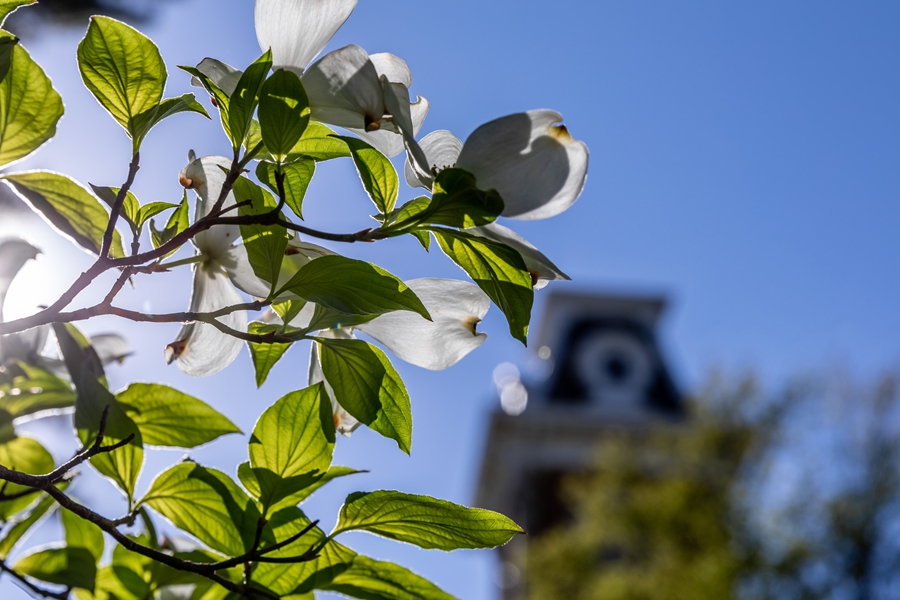FAYETTEVILLE, Ark. – The University of Arkansas has been awarded more than $1 million from the National Science Foundation to support the recruitment and retention of doctoral students from populations that are historically underrepresented in science, technology, engineering and mathematics, the STEM fields.
An interdisciplinary team of researchers and administrators was awarded $1,075,000 through the Arkansas Louis Stokes Alliance for Minority Participation (ARK-LSAMP) program, the state's subset of a national program that assists universities and colleges in diversifying the science, technology, engineering and mathematics workforce for the nation.
The National Science Foundation identifies underrepresented groups as: African Americans, Hispanic Americans, American Indians, Alaska Natives, Native Hawaiians and Native Pacific Islanders.
The grant will provide a $32,000 stipend, plus additional support costs, to a cohort of 12 students pursuing doctoral degrees in the NSF's "Ten Big Ideas" priority areas, such as Harnessing the Data Revolution, at the U of A.
"As we build a more diverse, equitable and inclusive University of Arkansas, we are grateful for this significant award supporting our efforts and, most importantly, our students," said Yvette Murphy-Erby, vice chancellor for diversity and inclusion. "The remarkable Ph.D. students who will benefit from this grant will take their place among the leaders in STEM fields and will inspire generations of future leaders from underrepresented populations."
The full alliance, consisting of eight institutions in the state, will support the cohort in activities such as the ARK-LSAMP annual research symposium and other graduate seminars that emphasize preparation and competitiveness for other graduate student support, including NSF's graduate fellowship.
The award also will support intercultural training for faculty to address institutional culture and incorporate a suite of "champions" to mentor the participants.
Researchers for the program include:
- Jorge Almodovar, assistant professor and Ray C. Adam Chair in chemical engineering
- Anissa Buckner, chair of the Department of Biology at the University of Arkansas-Pine Bluff
- Yvette Murphy-Erby, vice chancellor for diversity and inclusion
- Kim LaScola Needy, dean of the graduate school and international education
- Joseph Steinmetz, chancellor
Almodovar will serve as site director for the project and will oversee the program's implementation.
The program will provide funding, training and a support network for doctoral students, all of which are critical to growing the pipeline of STEM leaders from historically underrepresented backgrounds.
"There is a lack of professionals from these underrepresented groups in academia, industry and the public sector, and there's a need to train that future workforce," Almodovar said. "People from underrepresented groups need role models who look like them. Because this program focuses on Ph.D. students, that means they're likely to be the next generation of faculty members, industry leaders and science policy experts, working at places like the National Science Foundation and the National Institutes of Health. As we train more students from these groups, they become role models for others, and the numbers continue to grow."
The Arkansas Bridge to the Doctorate LSAMP program will be implemented in an NSF-designated Established Program to Stimulate Competitive Research (EPSCoR) jurisdiction to further enhance research and education capability in the region. The project is jointly supported by the Louis Stokes Alliances for Minority Participation and NSF EPSCoR.
About the University of Arkansas: The University of Arkansas provides an internationally competitive education for undergraduate and graduate students in more than 200 academic programs. The university contributes new knowledge, economic development, basic and applied research, and creative activity while also providing service to academic and professional disciplines. The Carnegie Foundation classifies the University of Arkansas among fewer than 3% of colleges and universities in America that have the highest level of research activity. U.S. News & World Report ranks the University of Arkansas among its top American public research universities. Founded in 1871, the University of Arkansas comprises 10 colleges and schools and maintains a low student-to-faculty ratio that promotes personal attention and close mentoring.
Topics
Contacts
Andy Albertson, senior director of communications
University Relations
479-575-5606,
